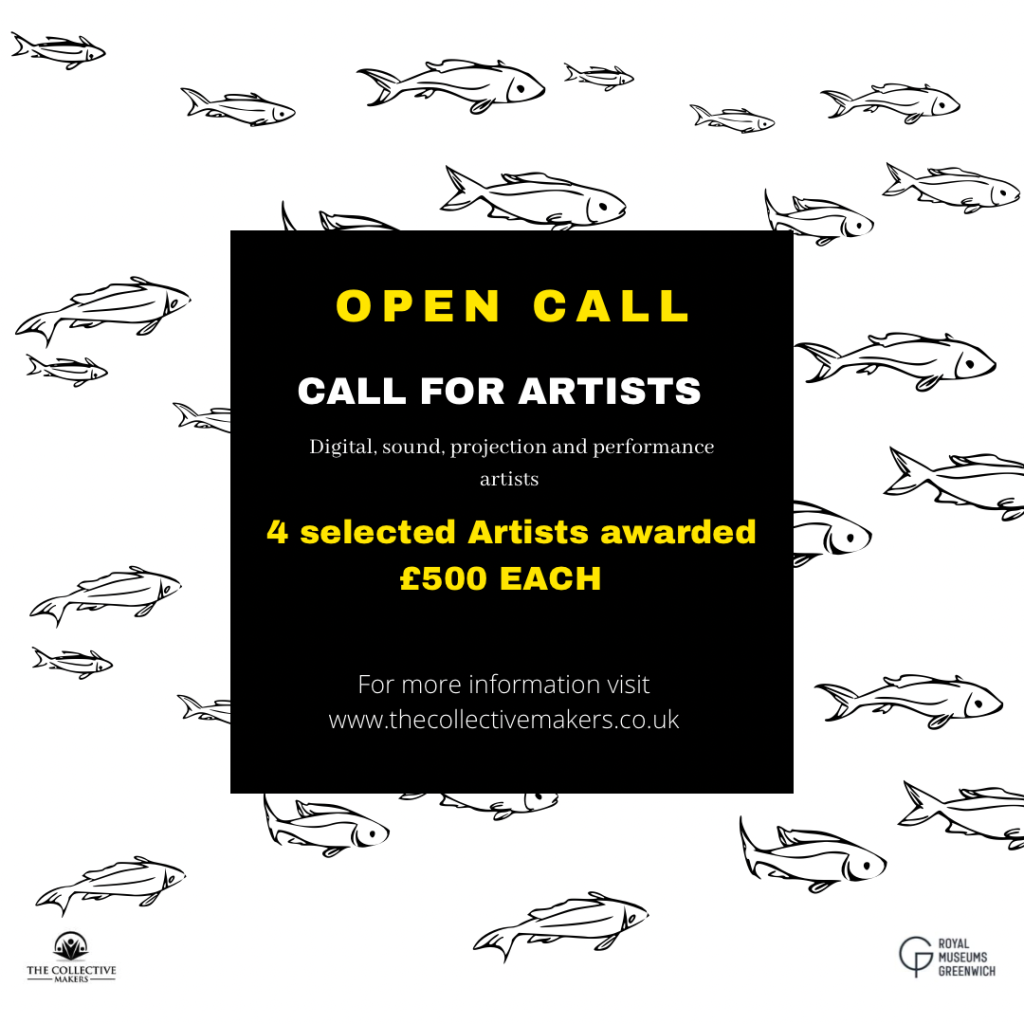
The Collective Makers are in partnership with Royal Museum Greenwich and are launching a campaign in response to the ocean crisis that is presently taking place.
Winners
- Jamie Ardor
- Richard Devonshire & Jorge Verdin
- Aya Mohamed
- Amber Copper Davies
CONGRATULATIONS to all of our winners! Thank you for all the entries, it was a difficult decision. However, do not be discouraged we have more opportunities so subscribe to our Free Membership and be the first to know!
The Reversible Pendulum
by Jamie Ardor
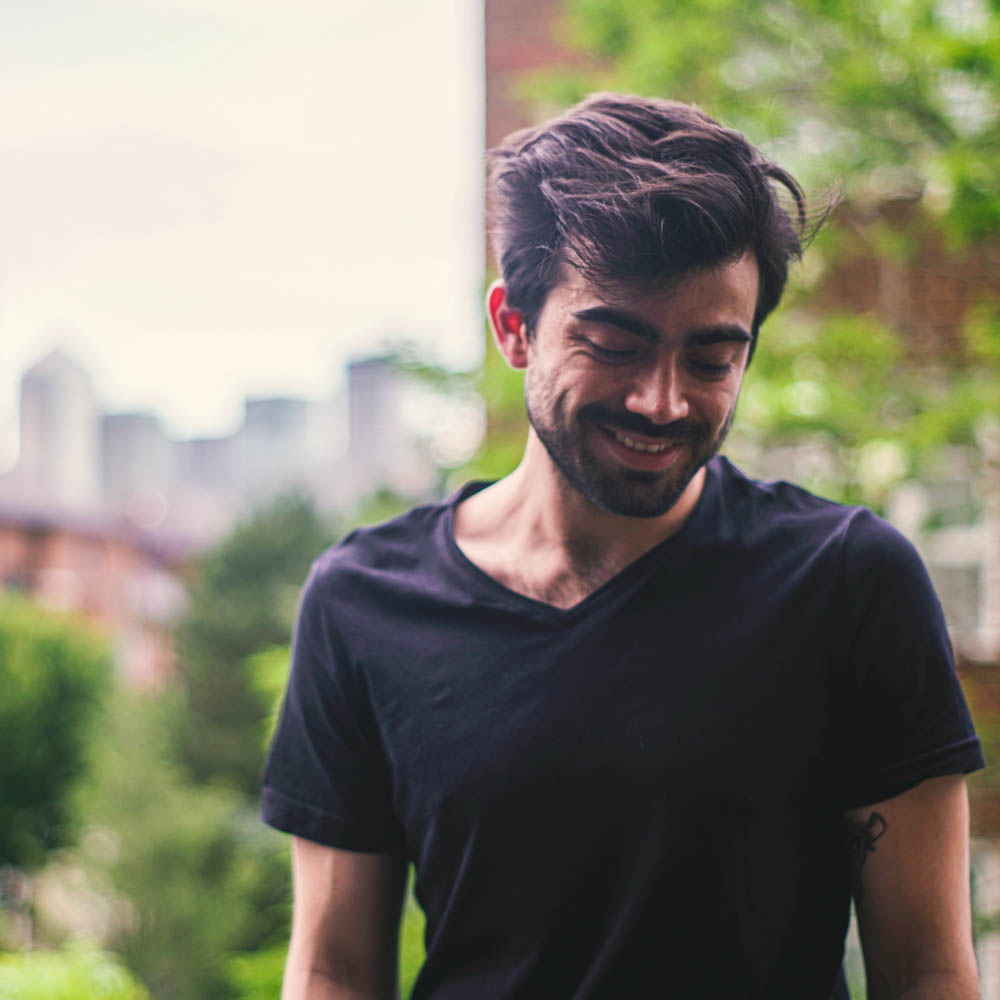
Jamie Ardor is a Senior Graphic Designer, artist, and multimedia creative. Having progressed from a Fine Art background into an industrial design level of Visual Communication, he strives to create thought-provoking, unique outcomes to stretch the boundaries of art and design into the everyday lives of society. His other passions, such as music and a dedication to solving the climate crisis, are all inspirations for his work and thought processes, driven by the simple ideology of helping make this world a better place.
A pendulum swings. Clockwork gears turn. An oil rig pump shifts into motion, slowly damaging the ecosystem, raising the sea level and covering the scene in a polluted, contaminated and murky liquid.
All hope is not lost however. As the scene continues, water washes over the desolated landscape. Time reverses, offering hope of a return to the flourishing ecosystem of this planet.
The Reversible Pendulum aims to raise awareness of global warming and sea level rise through animation. The work offers prosperity, and a chance to reverse the continually declining impact on our climate.
The Silent World
by Richard Devonshire & Jorge Verdin
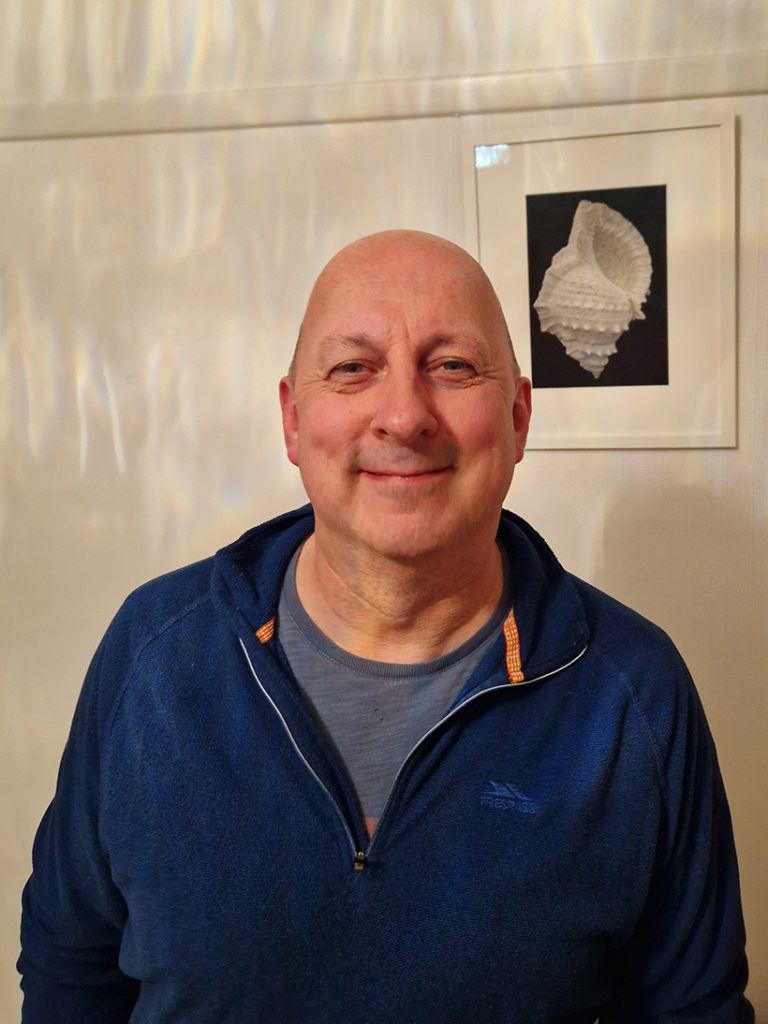
Richard Devonshire uses cutting edge technology to give a modern interpretation of fine art photography, painting, sculpture and drawing. He is creating a body of work which focuses on nature and its relationship with mathematics.
Richard’s creative process involves creating textured 3D models, virtual cameras and lighting systems that mimic real world settings and characteristics. While the work suggests a form of photorealism, their visual qualities also radically differ from that of photography and lends to a heightened level of detail, implying unlimited possibilities.
The Silent World is a looping animation that illustrates the synchronised, collective behaviour of fish.
Numbers of fish are dropping faster than they can reproduce and this is causing profound changes to life in our oceans. As traditional species disappear, other species are targeted. With climate change creating other threats to our oceans, we need to give them all the help we can.
Like the Ocean, We Rise
by Aya Mohamed
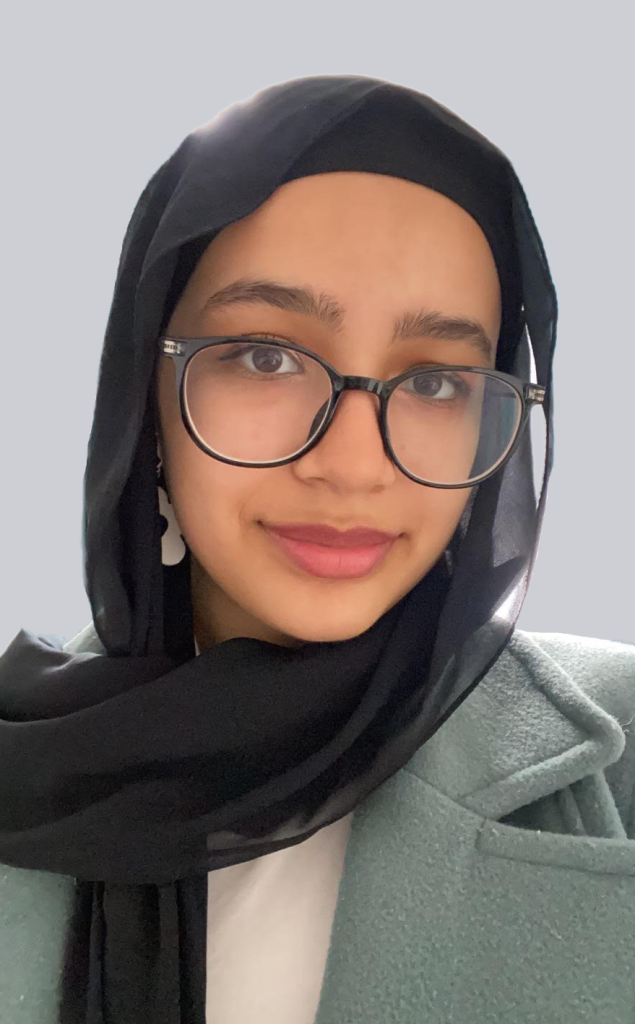
Aya Mohamed is an illustrator and designer who’s active on social media and uses current events as inspiration for their work. She loves making art relatable to others by incorporating many of the struggles they collectively go through.
Recently, she wrote an essay called ‘The Guilt of Going Green’ and discovered how widespread ‘eco-anxiety’ is, exacerbated by media negativity. She wanted to use her artwork to remind people not to give in to fatalism and complacency. She hopes her work can encourage people to remain optimistic and find community, because climate activism is a collective movement where change is amplified through unified action.
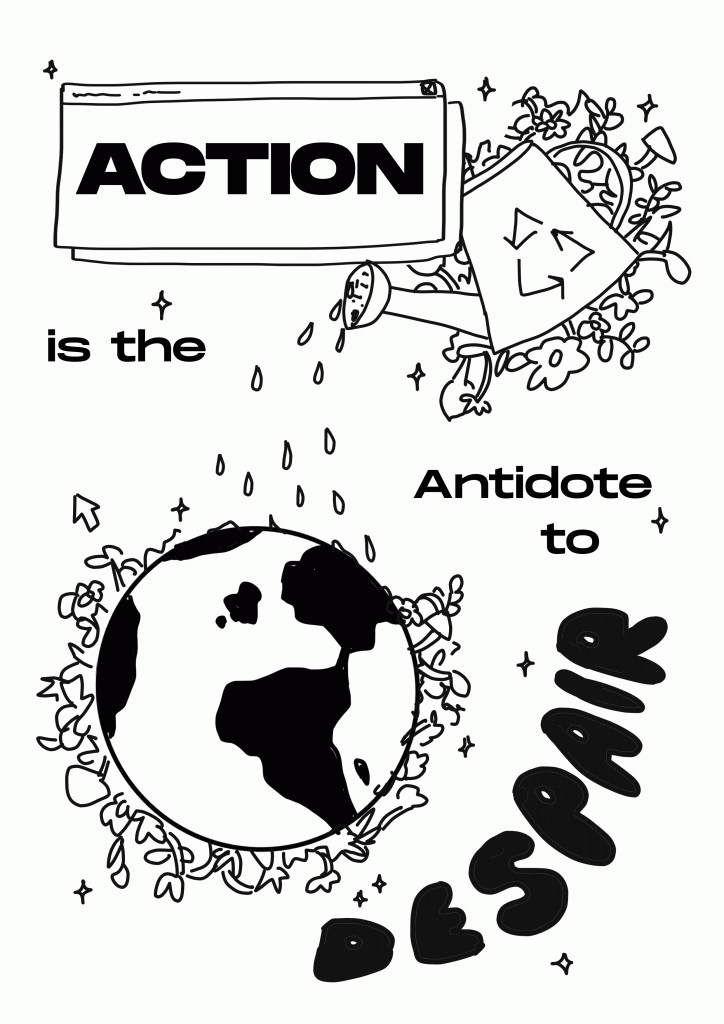
Much of the news surrounding climate change is negative and depressing. So negative in fact, that it has brought about a new type of anxiety: ‘eco anxiety’. This can be especially acute for young people and ‘Gen Z’, who feel even more restless and unheard.
Like the Ocean, We Rise is a series of animated posters designed to counteract the pessimism, and showcase all of the small changes we can make in our daily lives that will make a difference. Of course this is not enough, and we need large-scale change in all areas, from technology to politics. But it can help everyone to realise the consumer power they hold, and the difference they make.
Sea Change
by Amber Cooper-Davies
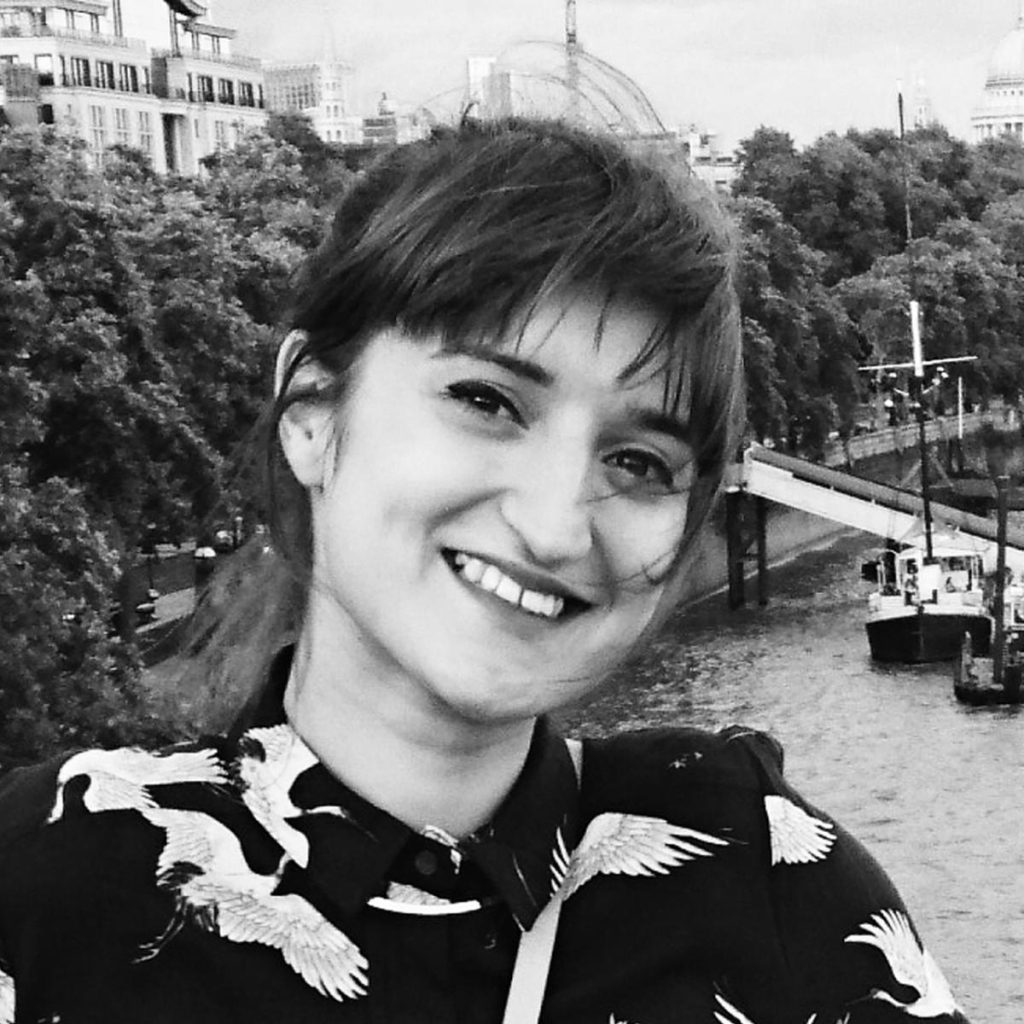
Amber Cooper-Davies is an illustrator and animator based in North London. Her work is characterised by a love of physical materials, working with paper stop-motion characters and inky textures in animation and collage across her illustration work. Amber has been lucky to produce work for clients and organisations that reflect her values and ethics about social issues and protecting the environment.
Sea Change follows the perspective of a fish trying to go about their life peacefully in an increasingly polluted ocean.
As their friends are replaced by more and more plastic we wonder: will we clear up our mess, or simply continue to exploit the ocean?